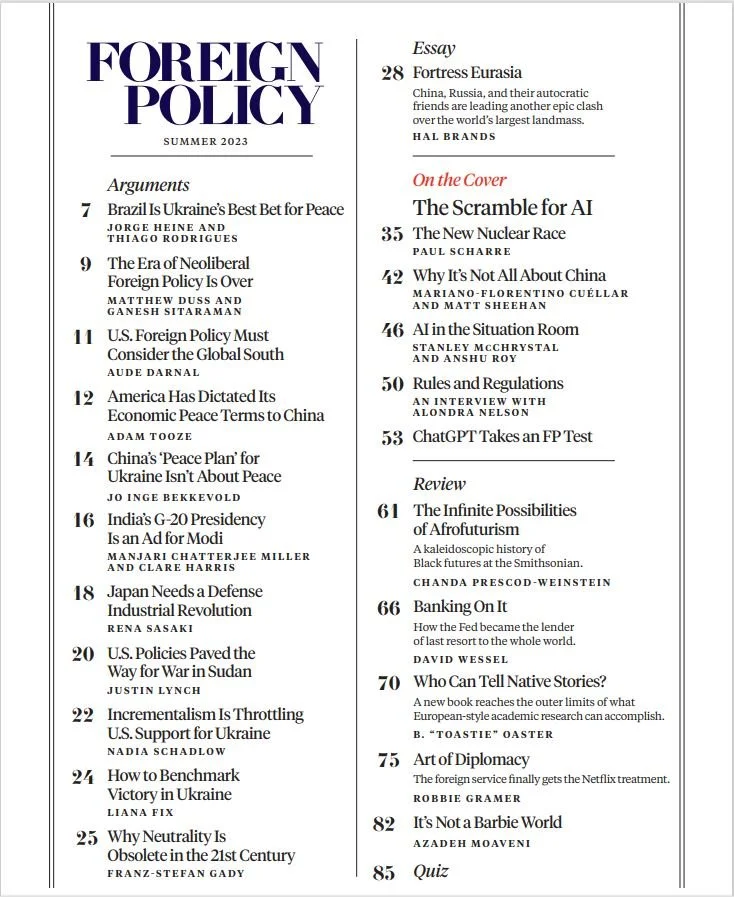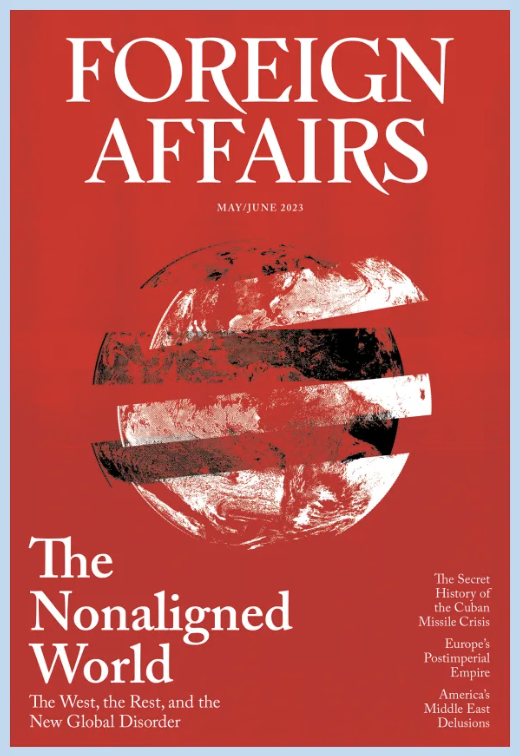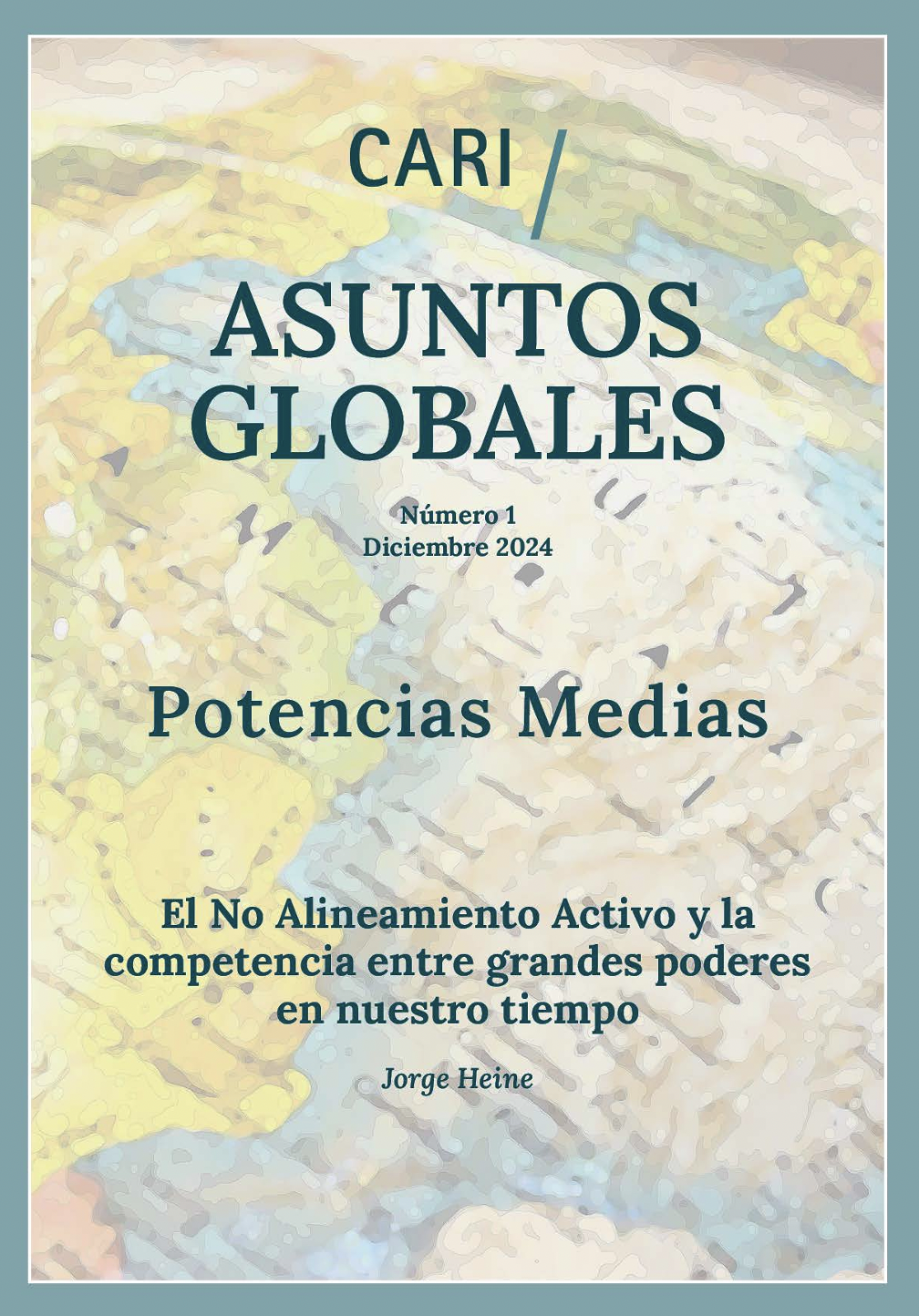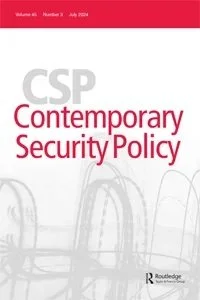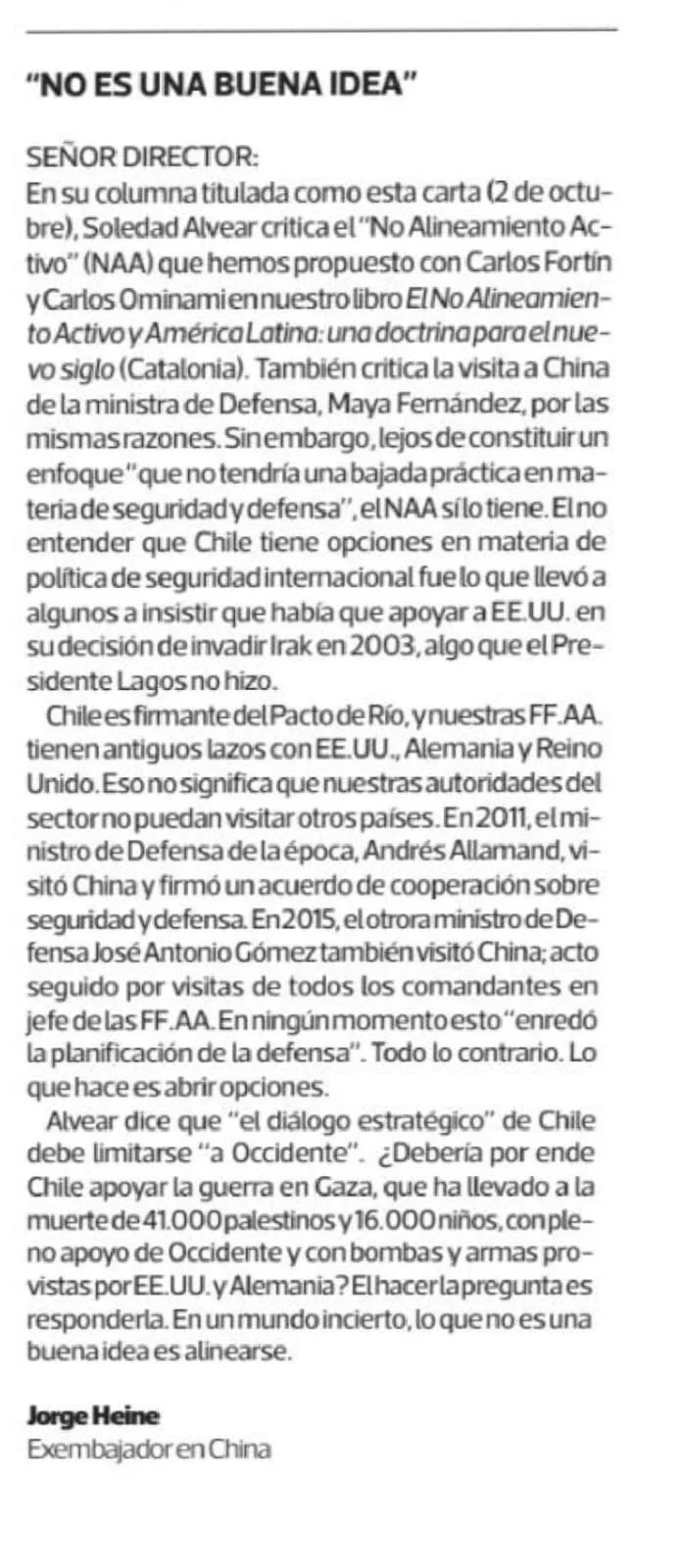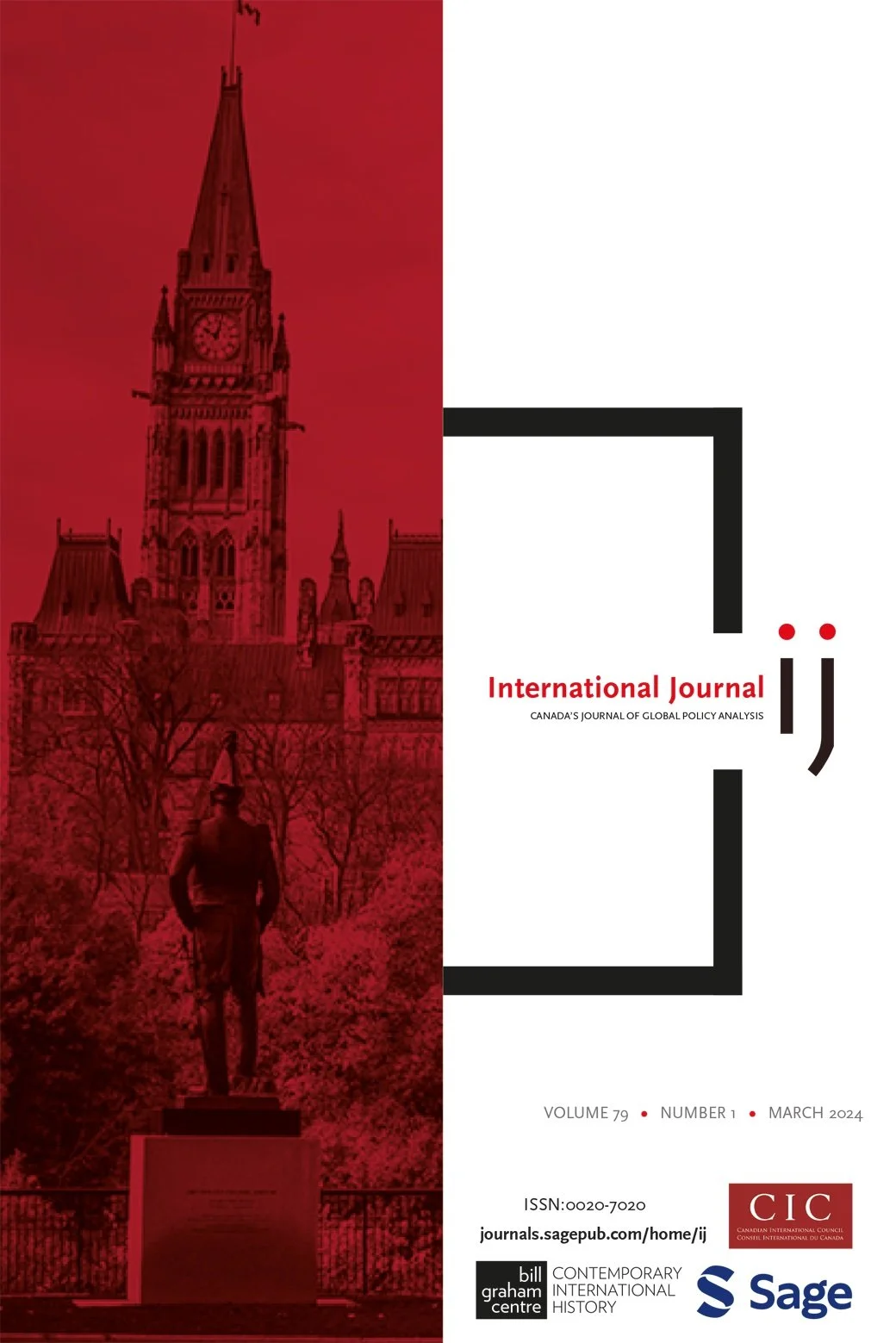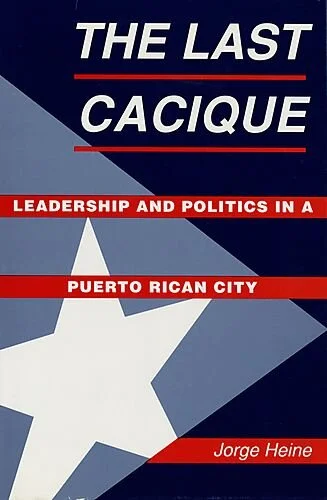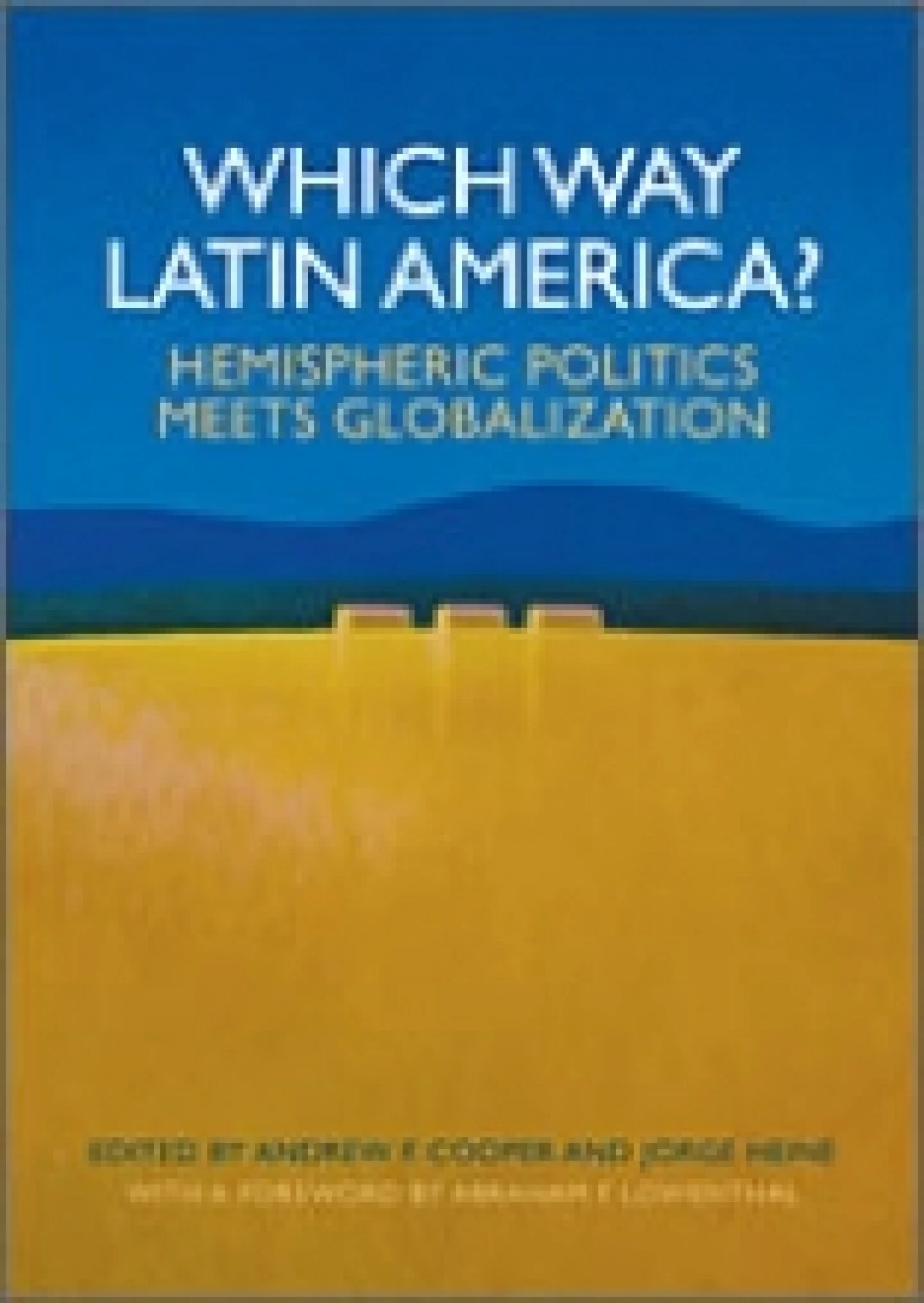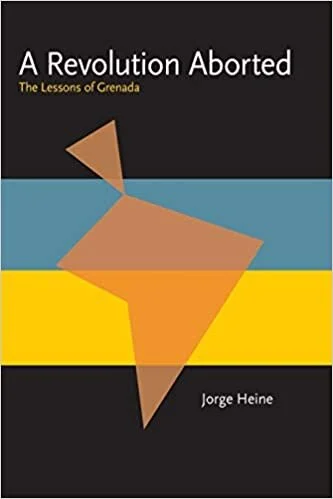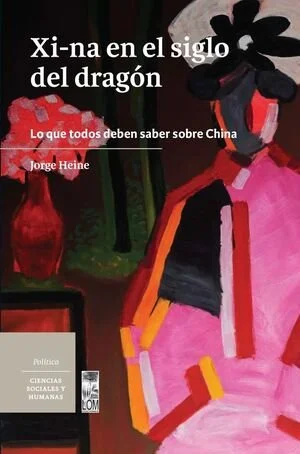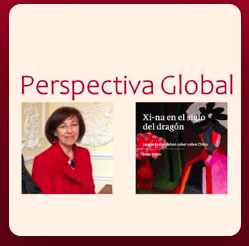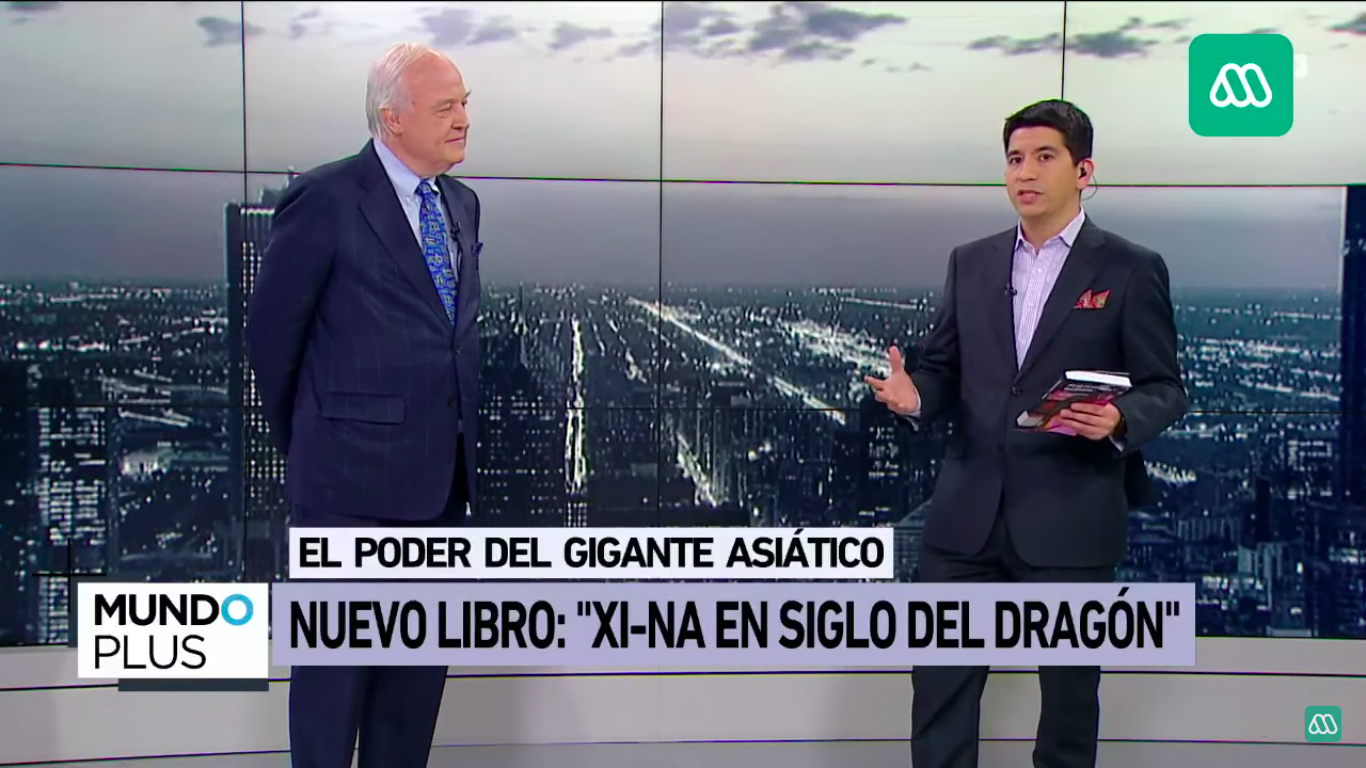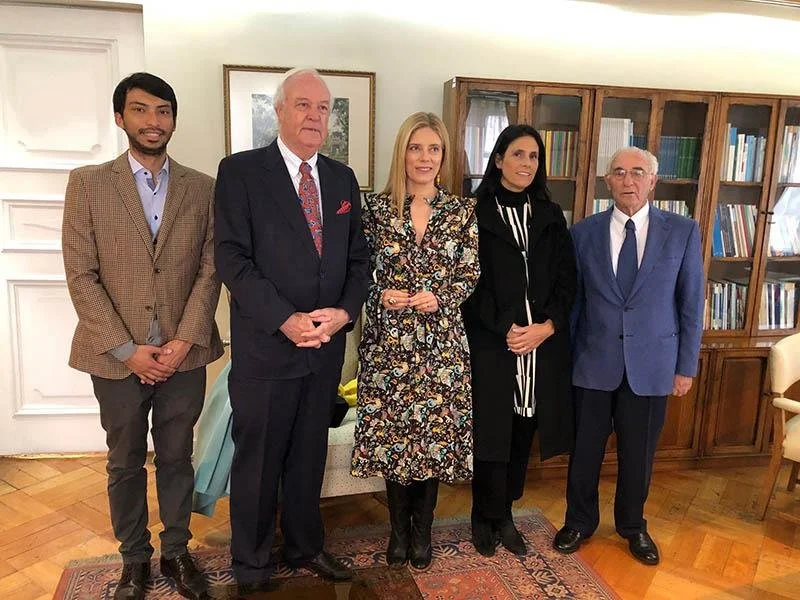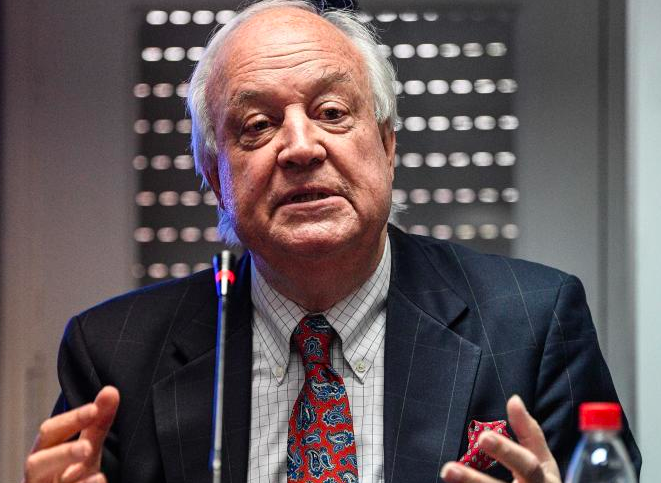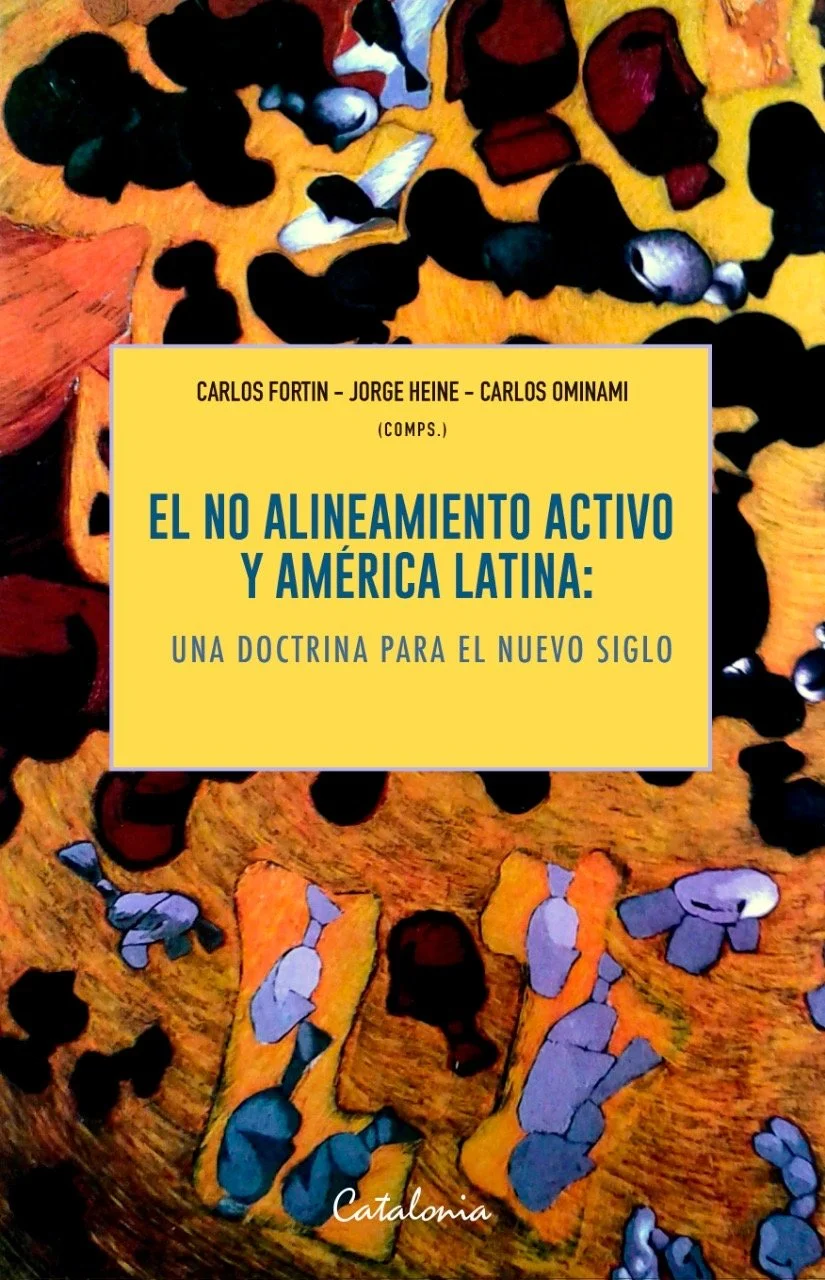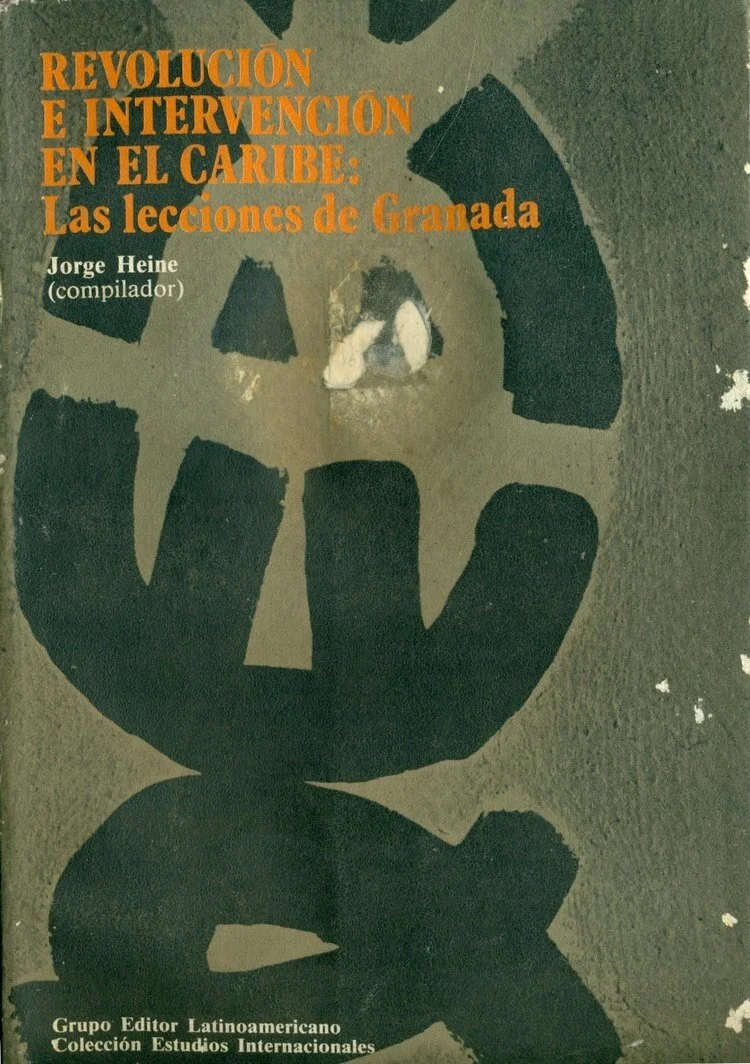Books & Edited Volumes (English)
Latin American Foreign Policies in the New World Order:The Active Non-Alignment Option
Edited with Carlos Fortin and Carlos Ominami (Anthem, 2023)
For long, Latin America had the conceit of considering itself as “the middle class of nations”—not as rich as prosperous as the North Atlantic countries but certainly more so than those of Africa and Asia. This notion was always a bit of an artifice. Yet, it is one that has become especially apparent as the region descends from periphery to marginality, and “diplomatic eclipse”, in the words of Alain Rouquié. What to do to revert this trend?
In this book, some of the region’s leading analysts and foreign policymakers argue that Active Non-Alignment is the path to follow if the region is to realize its full potential and occupy its rightful place in the concert of nations. Steeped in the best traditions of the Global South, but sharply attuned to the imperatives of the new century, Active Non Alignment constitutes a guide to foreign policy action in a world in turmoil, in which those not present at the high table charting a new path and shaping the new system will be left behind.
Charting the change from the old Third World’s cahiers des doleances diplomacy championing the New International Economic Order (NIEO) to the current new collective financial statecraft of the New South, reflected in entities like the Asian Investment and Infrastructure Bank (AIIB) and the New Development Bank, the book opens new vistas for a Latin America. The latter has diversified its diplomatic, trade, investment and financial links and will not let itself be cajoled back to the days of the Monroe Doctrine. Yet, the forging of collective action will require a much more concerted effort at regional cooperation that has been extant until now. For those purposes, Active Non Alignment provides the right set of tools.
21st Century Democracy Promotion in the Americas: Standing up for the Polity
with Brigitte Weiffen, Routledge, 2014.ISBN: 9780415626378.
“In a short and engaging book on the subject, Jorge Heine, a scholar-diplomat, and Brigitte Weiffen, a visiting professor at the University of São Paulo, recount the importance of the Organization of American States (OAS) in the history of democracy defense and promotion in the hemisphere, from the OAS Charter in 1948 to the Santiago Commitment in 1991 and the Washington Protocol a year later, which established an ‘anti-coup’ norm.” - Oliver Stuenkel review in Democracy and Security (read full review)
“… Heine and Weiffen competently describe the triumphs and frustrations of recent oas responses to threats to democracy in the region, revealing how hard it is to respond to the gradual deterioration of democratic institutions, particularly when such institutions are vulnerable to wily, democratically elected would-be autocrat.” - Richard Feinberg review in Foreign Affairs (read full review)
“This new book offers an up-to-date and comprehensive study of the promotion and defense of democracy in the Americas. The authors demonstrate an impressive command of the scholarship on the topic, offering a detailed analysis that integrates a large secondary literature with an array of primary sources ranging from personal interviews and archives to WikiLeaks. They also make an important empirical contribution by developing a typology of recent democratic crises, which serves as the basis for a broad comparative study” - Dexter Boniface review in Latin American Politics and Society (read full review)
"Heine's and Weiffen's book shows the difficulties regional institutions such as the OAS have experienced when trying to create mechanisms to promote and defend democracy. The book certainly is a contribution to the debate on the relations between regionalism and democracy in Latin America." - José Briceño Ruiz review in Brazilian Political Science Review (read full review)
“In a slim but insightful book, Heine and Weiffen illustrate the rise and partial decline of consensus on defining, promoting, and—especially— protecting democracy in the Americas.” - Tom Long in Latin American Research Review (read full review)
Purchase Book
The Dark Side of Globalization
Edited with Ramesh Thakur United Nations University Press, 2011. ISBN: 9789280811940.
“This remarkable fine book constitutes the elegant bridge between academic theorizing about globalization and the inspired anecdotage Thomas Friedman.” - Tom Farer, University Professor and past Dean, Josef Korbel School of International Studies, University of Denver
“Indispensable reading for anyone who wants to understand the full range of contents and discontents caused by globalization." - Thomas G. Weiss, Director, Ralph Bunche Institute of International Studies, CUNY; and past president, International Studies Association
“A bold step addressing the unattractive baggage that comes with the more desirable elements of globalization. An excellent collection that breaks away from conventional thinking to address globalization’s unsavory elements.” - Diana Tussie, Director, Department of International Relations, FLACSO, Argentina
Purchase Book
The Last Cacique: Leadership and Politics in a Puerto Rican City
A Choice Magazine Outstanding Academic Book of 1994
“An excellent book. Heine has a sense of human situations, of political battles, and the history of Puerto Rico. He has scholarly rigor, and his analytical arguments are laid out in clear language, with a stylistic elegance that will make the book appealing to specialists and nonspecialists alike.”
- Anne Perotin-Dumon
“The study of Puerto Rican politics has made great strides during the last three decades. Theoretically defined research and analysis of relevant issues and processes has replaced the historical perspectives, collection of documents and programs that characterized most of the research done in previous times. Very scant research and analysis, nevertheless, has been done on local politics in Puerto Rico. Jorge Heine's The Last Cacique: Leadership and Politics in a Puerto Rican City is thus a welcome contribution to the field of Puerto Rican politics, one which, nonetheless, reflects the flaws and limitations of this kind of analysis.” - Edgardo Meléndez review in the Canadian Journal of Latin American and Caribbean Studies (read full review)
“A major query of this study, with implications for the study of urban politics in the United States, is whether federal funds in Puerto Rico have short-circuited traditional political patronage patterns within a government system that is hyper- centralized, according to the author.” - James Jennings review in Political Science Quarterly (read full review)
“In The Last Cacique , Jorge Heine provides an insightful appraisal of the career of Benjamin Cole (1919-93), who was for twenty-four years the mayor of Mayagüez, the principal city of the western third of Puerto Rico".” - Henry Wells review in NWIG: New West Indian Guide (read full review)
“This is an important book, simply because it is what it claims to be, a study. It is a study of a 24-year mayoral tenure, but it is not a biography of that mayor nor a history of his city. Instead, Heine has written a very intelligent study of mayoral leadership behaviour in a Puerto Rican city.” - Truman R. Clark review in Journal of Latin American Studies (read full review)
The Caribbean and World Politics: Cross Currents and Cleavages
“It is a collection of essays on specific international economic and foreign-policy issues, choices, and crises facing the nations of the Caribbean. These are presented under four headings, the first of which deals with geopolitics and the international political economy, and includes a useful review of recent geopolitical developments within the region by Leslie Manigat.” - George C. Abbott, review in International Affairs (read full review)
“The idea that multiauthored volumes suffer from uneven quality, lack a common focus, and are spotty and/or repetitious has become a cliché among reviewers. The Caribbean and World Politics: Cross Currents and Cleavages, edited by Jorge Heine and Leslie Manigat, does not conform to the stereotype in the least. The book is of unusual quality, in both substance and style.” - Damian J. Fernandez, review in Hispanic American Historical Review (read full review)
“The organization of the material into different parts is sensibly done and a most welcome innovation is the preparation by Jorge Heine of a comprehensive bibliographic guide to the literature on Caribbean international relations produced between 1959 and 1984. This will be of real assistance to teachers of courses in this field.” - Anthony J. Payne review in Nieuwe West-Indische Gids (read full review)
“This book, edited by Jorge Heine and Leslie Manigat, is very impor- tant for three principal reasons. First, it contains studies of a variety of issues inherent in the rapid political and economic transformations that have modified Western Hemispheric relations as well as the Caribbean's role in global affairs. Second, its reasonable, objective approach contrasts with the more prevalent ideological or heavily quantitative analyses that are available. For an example of the latter, see Foreign Policy and Behavior of Caribbean States (University Press of America, 1984) by Georges Fauriol (reviewed in the JDA 19 [October 1984]: 120). Third, the book offers a unique opportunity to gain insight into the thinking of a contributing editor, Leslie Manigat, who had the short-lived opportunity to preside over a Caribbean nation's attempt to enter the highly complex process of democratic transition.” - Richard S. Hillman review in The Journal of Developing Areas (read full review)
“The Reagan Administration's early identification of the Caribbean basin as a 'hot spot' in world affairs has led to an outpouring of books dealing with the various dimensions of 'crisis' in the region. The work under review is but another of these, conceived at a time when the 'crisis' was at its height (almost half the chapters were first presented as papers to a conference held in April I983), but regrettably appearing late and when for many in the US the 'crisis' has passed, or at least is no longer topical. The temptation is thus to dismiss the work as yesterday's book. This would be over-hasty. It is distinguished both in quality and content from many which have appeared, in a number of ways.” - Paul Sutton review in Journal of Latin American Studies (read full review)
Reaching Across the Pacific: Latin America and Asia in the New Century
Edited with Cynthia J. Arnson & Christine Zaino Wilson Center, 2014.
Reaching Across the Pacific: Latin America and Asia in the New Century includes regional overviews as well as case studies of Argentina, Brazil, Chile, Colombia, Mexico, and Peru. The book focuses on the benefits as well as trade-offs for Latin America’s long-term development goals of the growing density of ties with the Asia-Pacific region. The book also explores what a Latin American strategy of “globalization as Asianization” means for the United States, and how integration schemes such as the Pacific Alliance and the Trans-Pacific Partnership can potentially strengthen economic, security, and geopolitical arrangements that sustain a liberal trading order.
"This is a fascinating moment to consider the linked fortunes of Latin America and of Asia. In June 2013, leaders of the world’s two most powerful nations, the United States and China, each visited Latin America and the Caribbean within days of each other. Chinese President Xi Jinping’s visit to Mexico, Costa Rica, and Trinidad and Tobago showed the strategic importance of the region to the resource-hungry Asian giant, which is eager to build strong trade, investment and diplomatic ties. U.S. Vice President Joe Biden toured Brazil, Colombia and Trinidad and Tobago, following a trip just one month earlier by Barack Obama to Mexico and Costa Rica" - Luis Alberto Moreno, Inter-American Development Bank President (in the Preface)
Read the Book
Which Way Latin America?
Edited with Andrew F. Cooper United Nations University Press, 2009. ISBN: 928081172X.
“Here is an accessible compilation of 17 lively essays by senior international relations theorists that describe how Latin American nations?ever more democratic, divided, and assertive?are interacting with one another and with the fast-changing global system.” - Richard Feinberg review in Foreign Affairs (read full review)
“In a book that is timely, comprehensive, and insightful, Cooper, Heine, and their colleagues sharpen the ‘big picture’ of international relations in the Americas while examining key countries, large and small, in Latin America and the Caribbean. The authors present their thoughtful and informative analysis on salient topics, such as multilateral institutions, China and India, energy, Chávez, democracy and partisanship, and point the way to the future.” - Jorge I. Domínguez, Antonio Madero Professor of Mexican and Latin American Politics and Economics, Harvard University
‘‘This is an ambitious and important volume. It brings together a group of the hemisphere’s best analysts and thinkers to explain how profoundly Latin America has changed in recent years, and what those changes mean for the people and politics of the region and for its relations with the US and the rest of the world.’’ - Peter Hakim, President of Inter-American Dialogue
“‘This excellent collection focuses on the dynamic interaction between Latin America and a fast-changing global system. Chapters expertly analyze crucial dimensions of this interaction, including democracy and the ‘rise of the left’, energy competition and resource nationalism, relations with China and India, the fraying of the Inter-American System, and such pivotal cases as Venezuela, Mexico, and Brazil. Contributors unpack both the impact of the world in and on the region, and the ever more complex and diversified relationship between the region and the world.’’ - Andrew Hurrell, Montague Burton Professor of International Relations, Balliol College, Oxford University
“‘Which Way Latin America? offers a fresh perspective on an old question that has yielded, up to now, tired answers. The authors survey the new landscape of more inclusive democracies and more independent foreign policies. The Obama Administration ought to read this to chart a new approach to the region.’’ - Robert Pastor, Professor of International Relations, American University and Former National Security Advisor for Latin America
“Though far from the last word on the subject, the book makes a valiant effort to sort through the complexities of domestic responses to multiple international forces over which individual governments have a tenuous control at best.” - David Scott Palmer review in Latin American Politics and Society (read full review)
The Puerto Rican Question
This booklet examines some of the critical issues that will affect the resolution of the Puerto Rican question of independence. Historical, social, political, economic and international dimensions of the issue are addressed. Chapters include: (1) "From Guanica to the New Deal"; (2) "The Commonwealth: Politics and Society"; (3) "An Economy in Transition"; (4) "Puerto Rico on the Global Scene"; and (5) "A Way Out of the Quandary." Monographs in FPA's Headline Series are published approximately four times a year and are intended as a resource for teachers and students in the foreign policy area. Each monograph: is about a world area or topic; is written by a noted scholar; is brief (usually 64 pages); is written to be highly readable; and includes basic background, maps, charts, discussion guides, and suggested reading.
Time for Decision: The United States and Puerto Rico
“Heine’s introductory essay on the political economy of the commonwealth makes a balanced presentation of the issues, and his concluding bibliographic essay will direct researchers to the major works in the field. The remaining essays in this volume cover political parties and participation, the union movement, critiques of the economic model, and the politics of US-Puerto Rican relations; and they are generally good enough to upgrade the overall quality of social science analysis of Puerto Rico.” - Sherrie Baver, review in Latin American Research Review (read full review)
“… all the essays provide pertinent information about Puerto Rico and its problems and should serve to stimulate discussion and debate in the near future.” - Idsa E. Alegría-Ortega, review in Nieuwe West-Indische Gids / New West Indian Guide (read full review)
The Oxford Handbook of Modern Diplomacy
“…The Oxford Handbook of Modern Diplomacy represents a monumental achievement in the field of diplomatic research. It is an even greater achievement that a common thread runs through the 49 thematic chapters: the transition from 'club' to 'network' diplomacy.”- Melissa Conley Tyler and Kelly Sullivan, review in The Hague Journal of Diplomacy (read full review)
“Inspired by work done in the Center for International Governance Innovation, and edited by distinguished CIGI practitioner-scholars Andrew Cooper, Jorge Heine and Ramesh Thakur, Th e Oxford Handbook contains a range of insightful articles and case studies by practitioners and theoreticians from around the world.'“ - Robert Dry, review in The Foreign Service Journal (read full review)
“Is twenty-first-century diplomacy different from previous centuries? Cooper, Heine and Thakur argue so, and give four reasons: because 'of globalization, from the shifting conceptions of national sovereignty, from the realization that emerging transnational challenges in many areas can only be dealt with through collective action, and from the growing interpenetration and interdependence of national societies'“ - Yves Laberge, review in Political Studies Review (read full review)
“… the insights, analytical categories and practical lessons presented in this book conform a very useful guide, which should hopefully reach a much broader public than the narrow group of specialists in diplomatic studies.” - Jost Dülffer, review in Sehepunkte Review. A Social Science Review
Fixing Haiti: MINUSTAH & Beyond
Edited with Andrew S. Thompson United Nations University Press, 2011. ISBN: 9789280811971.
“The authors in this volume oscillate between recognizing the urgency of a large international role in a fragile or failed state and arguing that local own ership and national institution building are required for lasting change.” - Richard Feinberg review in Foreign Affairs (read full review)
“This impressive collection of papers emerged from a workshop on the role of MINUSTAH in post-Aristide Haiti, although many chapters were redrafted in the light of the new complexities that emerged following the 2010 earth quake. (One contributor, Gerard Le Chevallier, died in the disaster.) The volume provides an impressive overview of current governance challenges in contemporary Haiti, concentrating on the role of the international community in 'stabilization' and on the crucial question as to when withdrawal is appropriate.” - Charles Forsdick review in International Affairs (read full review)
“This superb volume reflects the most sophisticated thinking about the challenges posed by Haiti and the international community's response, including after the devastating earthquake." - Michael Shifter, President, Inter-American Dialogue
“Library shelves sag under the weight of books on Haiti. Many are truly exceptional studies probing and dissecting the causes of Haiti’s repeated failures at sustaining development and good governance: French colonialism, European racism, US failures to plumb its ‘culture of poverty’, ecological devastation – and repeatedly and often mindlessly – the laying of historical blame on what is invariably called ‘the Haitian elite’.
All this, of course, is useful preface to understanding contemporary Haiti which is presently at yet another of those terrible political impasses. The well-documented economic complexity and labyrinthine nature of the island’s politics have now been magnified by a devastating earthquake, multiple killer hurricanes, and virtually out-of-control urbanization. The presence of the UN military peacekeeping and election monitoring contingents is struggling to keep the peace. Such conditions require fresh analysis, a multifaceted focus by an array of hands-on experts. This is precisely what this book offers in a straight and unvarnished fashion. Nothing presently in print equals it in terms of analytical depth and breadth. Its contents will most probably leave you thinking that solutions are not yet within our reach. This is as it should be if we are to join necessary caution to an equally necessary hope that a better future is indeed possible.” - Anthony P. Maingot, Professor Emeritus of Sociology, Florida International University, and past president, Caribbean Studies Association. (read full review in Latin American Research Review)
Purchase Book
A Revolution Aborted: The Lessons of Grenada
“Led by Marxist-influenced intellectuals drawing on an admixture of Black Power doctrines, socialist theory and nationalist appeals, in 1979 the New Jewel Movement took power in Grenada, a tiny island in the Caribbean with a total population of less than 100,000. Interfactional struggles and U.S. opposition combined to abort the movement in October 1983. Discussions of Grenada at the time tended to focus on the NJM's connections with Cuba and the Soviet Union and their implications for geopolitics; this volume takes the NJM experience seriously on its own terms and assesses its lessons for those who favor radical social and economic change in the Caribbean islands.” - Abraham F. Lowenthal review in Foreign Affairs (read full review)
“This is a collection of fourteen insightful essays grouped under the headings The Domestic Record, International Affairs, Crisis and Aftermath, and A Comparative Assessment. In addition, Jorge Heine, the editor and himself a contributor, provides an Introduction and Bibliographic Guide to the Grenada Revolution. By no means do the papers presented here adhere to a consistent viewpoint. Even those, however, which are most critical such as those by Frederic L. Pryor and Robert Pastor present reasoned and in- formed discussions of the snares and traps which awaited the PRG in the realm of foreign policy. By the same token, those authors who write from the political Left, such as Paget Henry and Jorge Heine, are sensitive to the weaknesses in the theory and practice of the Maurice Bishop headed government. In sum, this volume presents some of the best and most sophisticated writing which has appeared concerning the Grenada Revolution.” - Jay R. Mandle review in NWIG: New West Indian Guide (read full review)
“This book, comprising twelve essays by a range of academics and commentators, addresses issues unresolved in previous assessments of the Grenadian revolution. Instead of shying away from the complexities and ambiguities of the PRG regime, the contributors explore the contradictory nature of a revolutionary government which achieved growth in a peripheral capitalist economy, which courted both Castro and Mitterrand, and which rejected elections while maintaining the the post of governor-general.” - James Ferguson review in International Affairs (read full review)
“The 12 articles included in Jorge Heine's symposium volume, A Revolution Aborted, provide a remarkably comprehensive, informative and balanced account of the Grenadian Revolution and its aftermath by recognized specialists in Caribbean development and comparative politics.” - Liisa L. North review in the Canadian Journal of Political Science (read full review)
“The most scholarly and informative of the group is the volume edited by Jorge Heine, of the Centro Latinoamericano de Economia y Politica Internacional in Santiago, Chile, and the University of Puerto Rico. Quite remarkably, Heine and his collaborators have added a very useful book to the already crowded shelf of studies on the Grenadian Revolution and its destruction.” - Edward Dew review in Latin American Research Review (read full review)
Publicaciones en español
Xi-Na En El Siglo Del Dragón: Lo Que Todos Deben Saber Sobre China
«¿Qué quiere China?» es, según Michael Schuman, «la mayor pregunta del siglo XXI». Ello no debería sorprender, tratándose del país más poblado y la mayor economía del planeta. ¿Cómo ha llegado el antiguo Imperio del Centro a posicionarse en esta categoría? ¿Será éste, cómo dicen algunos, el siglo de Asia y, en buena medida, el de China? ¿Cuál es el secreto del así llamado «milagro chino», que llevó a este país a crecer a un promedio de un 10 % anual por treinta años consecutivos, desafiando las predicciones de todos los economistas y pasando a ser la principal potencia manufacturera y exportadora del mundo?
Este libro examina cómo, en el curso de los últimos cuarenta años, China ha irrumpido con singular fuerza en el escenario internacional, dando su propio sello a un mundo en cambio, y marcando un nuevo rumbo en las relaciones internacionales de nuestro tiempo. Su autor, el abogado y politólogo Jorge Heine, quien fuese embajador de Chile en China, responde a estas interrogantes, poniendo un especial énfasis en lo ocurrido en el gobierno del presidente Xi Jinping y lo que significa para el mundo. Lo hace en un texto ameno, combinando análisis político con observaciones de primera mano y anécdotas de sus vivencias en China, un país en que los cambios son tan acelerados, que han llegado a ser calificados como propios de un nuevo género: el «ultrarrealismo». Una lectura indispensable para todo aquel que quiera saber más sobre el país que está cambiando el curso del nuevo siglo.
Comprar Libro
El no alineamiento activo y América Latina: una doctrina para el nuevo siglo
Las diversas perspectivas expuestas en este libro tienen un hilo conductor: una visión del mundo contemporáneo como un sistema internacional en transformación, con un poder hegemónico en declinación, nuevos actores y nuevas configuraciones de alianzas y rivalidades, así como nuevas agendas y desafíos. La caracterización más precisa de esta situación suscita una variedad de respuestas entre los autores, figuras muy destacadas del ámbito de la investigación en ciencias sociales, la academia y el ejercicio de altas responsabilidades políticas en diversos países de Latinoamérica. Es en este escenario marcado por la incertidumbre, surge la propuesta de No Alineamiento Activo (NAA) como una doctrina de política exterior sustentada en principios fundamentales y no simplemente intereses contingentes. Ella no se confunde con un pragmatismo que termina siempre en oportunismo. El NAA puede generar una respetabilidad y un posicionamiento internacional que no asegura ningún tipo de alineamiento. Constituida en doctrina latinoamericana podría sacar a la región de la marginalidad e irrelevancia de hoy.
Comprar Libro
Puentes sobre el Pacífico: Latinoamérica y Asia en el nuevo siglo
La importancia y el impacto de China sobre las economías de América Latina –en buenos y malos tiempos– han sido explorados en diversas obras, aunque sin destacar suficientemente la relevancia de otros gigantes asiáticos, como Japón, Corea del Sur y la India. En este trabajo, trece reconocidos analistas de Argentina, Brasil, Chile, Colombia, Estados Unidos, México y Perú exploran las cada vez más profundas relaciones entre América Latina y Asia y lo que significan para la economía política de la región.
Comprar libro
La nueva India
La Nueva India es un libro necesario para entender cómp un país, superando enormes obstáculos y potenciando su gran diversidad política, cultural y religiosa, toma al mundo por asalto.
Comprar Libro
Revolución e intervención en el Caribe: las lecciones de Granada
Enfrentando los cambios globales: anuario de políticas exteriores latinoamericanas : 1991-1992
Después de la “década perdida” de los ochenta, muchos consideran que los noventa pueden ser la “década de América Latina”. ¿Qué están haciendo los países de la región para adaptarse al rápidamente cambiante entorno internacional? ¿Qué tipo de inserción están buscando en el mundo de la post-Guerra Fría? ¿Cuáles son las perspectivas del nuevo tipo de integración que ha cobrado nuevo vigor en América Latina? Destacados especialistas en relaciones internacionales en América Latina responden a éstas y otras interrogantes en este Anuario, fuente obligada de consulta en cancillerías y universidades de todo el mundo.


